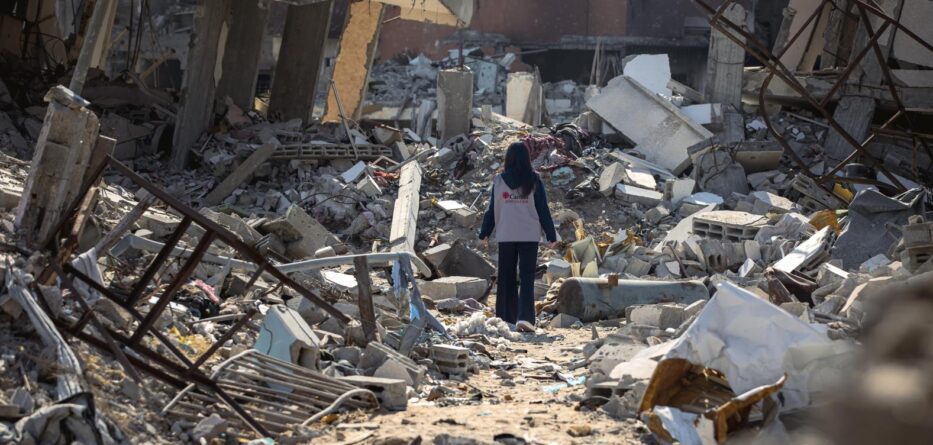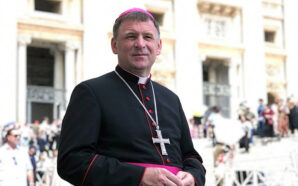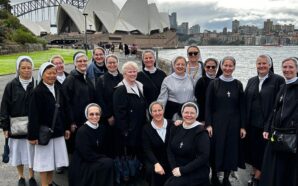Cardinal Pietro Parolin, Secretary of State, spoke to Vatican News about several issues currently at the center of the Holy See’s attention.
These include the terrible images coming from Gaza, the antisemitic attack in Washington, DC, the possibility of a peace summit on Ukraine, and the early days of Pope Leo XIV’s pontificate.
Q: Your Eminence, in Gaza, children are dying of hunger and the population is exhausted; bombs are falling on schools and hospitals. Yet there does not seem to be any intention to stop the bombins…
What is happening in Gaza is unacceptable. International humanitarian law must always apply, and apply to everyone. We call for an end to the bombardments and for the necessary aid to reach the population: I believe the international community must do everything possible to bring this tragedy to an end.
At the same time, we strongly reiterate the demand that Hamas immediately release all the hostages it still holds, and return the bodies of those who were killed after the barbaric attack of 7 October 2023 against Israel.
Q: How did you react to the recent attack in Washington, in which two members of the Israeli embassy staff were killed?
It shook me profoundly. Just as on 7 October, there are innocent victims—and these were also committed to peace and humanitarian initiatives. We must remain vigilant and ensure that the cancer of antisemitism, never fully defeated, does not rear its head again.
Q: In recent days, after the limited results of the Istanbul meeting, the possibility of new negotiations hosted by the Vatican has been mentioned—although the Russians have already said “no.” Can you tell us what is happening on that front?
Pope Leo has offered the Holy See’s full availability to host any negotiations, providing a neutral, protected venue. This was not a mediation—because a mediation must be requested by the parties. In this case, there has only been a public offer of hospitality for a possible meeting. Other potential venues are now being discussed, such as Geneva.
In any event, it is not important where the negotiations between Russians and Ukrainians—negotiations we all hope for—will take place. What truly matters is that these negotiations finally begin, because it is urgent to stop the war.
First and foremost, a truce is needed to end the devastation, the destroyed cities, the civilians losing their lives. Then it is urgent to reach a stable, just, and lasting peace, one accepted and agreed upon by both sides.
Q: The word “peace” was on the new Pope’s lips from the very first moments of his election.
Yes, Pope Leo XIV continues forcefully in the footsteps of his predecessors. It struck me that in his first Regina Caeli from the central loggia of St. Peter’s Basilica—exactly the spot from which Pope Francis last blessed the faithful, speaking of peace and disarmament—Pope Leo repeated Saint Paul VI’s words at the UN: “Never again war!”
The Pope and the entire Holy See are committed to building peace and supporting every initiative for dialogue and negotiation.
Q: Some speak of a renewed “protagonism” of the Vatican on the world stage…
I would rather refer to the profound words of Leo XIV in his homily at the Mass with the Cardinals in the Sistine Chapel and at the Mass inaugurating his pontificate: we must fade into the background because Christ is the protagonist; Christians do not feel superior to others but are called to be a “little leaven in the dough,” bearing witness to love, unity, and peace.
Rather than speak of “protagonism,” I would place diplomatic initiatives within this context of service to peace and fraternity.
Q: Addressing journalists, Pope Leo asked for a “different kind of communication.” Is there also a “war of words”?
Journalists—and communicators in general—perform a precious task, all the more so in times of war. The Pope has asked for communication that “is not cloaked in aggressive words” and “never separates the search for truth from the love with which we must humbly seek it.”
Words too can become instruments of war, or they can help us understand one another, to dialogue, recognizing each other as brothers and sisters. Peace begins in each of us, and we are called to build it starting with how we communicate with others. As Pope Leo explained, we must “reject the paradigm of war” even in our communication.
Q: Speaking of the search for truth: in the final days of Pope Francis’s pontificate, up to the days before the conclave, there were comments about how various heads of Dicasteries in the Curia handled abuse allegations they received previously. Have these been analyzed?
Regarding comments and rumors about the conduct of certain heads of Roman Curia Dicasteries in relation to abuse reports during their time as diocesan bishops, inquiries carried out by the competent bodies—through examination of objective and documentary evidence—have shown that the cases were handled ad normam iuris, that is, according to the norms in force, and were forwarded by the then-diocesan bishops to the competent Dicastery for review and evaluation of the accusations.
The verifications by the authorities entrusted with the matter have definitively found no irregularities in the conduct of the diocesan bishops.
Q: By choosing the name Leo, the new Pope places himself in continuity with the Pope of Rerum Novarum: at the end of the 19th century there was the Industrial Revolution; today we live in the age of the digital revolution and face the challenges posed by artificial intelligence. How should we respond to these challenges?
We await the reflections that the Successor of Peter will wish to make on this. I believe the right path is neither uncritical acceptance nor demonization.
The ever more sophisticated and powerful capabilities that technology offers us must remain tools used always for the good, never forgetting that we cannot delegate to a machine decisions concerning the life or death of human beings.
We must remain vigilant to prevent—as unfortunately sometimes happens—the digital realm and thus artificial intelligence from being used as instruments of propaganda to influence public opinion with false messages.
Recalling journalists who have been imprisoned, Leo XIV spoke of the courage “of those who defend the dignity, justice, and right of peoples to be informed, because only informed peoples can make free choices.”
With thanks to Vatican News and Andrea Tornielli, where this article originally appeared.








